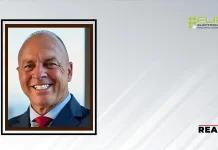Reckitt, the maker of Lysol and Dettol, has developed a tailor-made targeted hygiene program to help protect attendees of COP26, one of the largest in-person events to be held since the beginning of the pandemic. Reckitt’s protocols and products will help reduce the spread of illness-causing germs across 50,000 hotspots in a conference space larger than 48 football fields.
Reckitt’s Pro Solutions team of virologists, microbiologists, and medical scientists worked closely with London School of Hygiene and Tropical Medicine (LSHTM) over the last nine months to support the United Kingdom Cabinet Office, which is hosting COP26, to identify high-traffic, high-touch areas across the conference. Its approach to targeted hygiene establishes hygiene interventions at moments and places where it matters most for health, rather than indiscriminate or frequent disinfecting, making it more effective and sustainable.
“As the official hygiene partner for COP26, Reckitt is lending an unrivalled level of scientific and medical expertise to develop and implement hygiene protocols for a complex event designed around efficacy and sustainability,” said Dr. Lisa Ackerley, Global Director of Medical and Scientific Engagement, Hygiene at Reckitt. “Our multifunctional team has risen to the challenge to deliver thousands of germ-killing interventions every hour across each zone throughout the conference together with strategically placed hand sanitizer stations to encourage hand hygiene as an important part of targeted hygiene. We look forward to playing our role in helping to enable the critical business of COP26 for the benefit of our planet and our future.”
Reckitt’s program includes targeted hygiene interventions, hygiene-centered messaging, and use of its most sustainable products. Driven by its purpose to protect, heal, and nurture in the relentless pursuit of a cleaner, healthier world, Reckitt will:
Help protect 25,000 delegates from illness-causing germs:
Focusing on 12 key zones with 60 high-risk surfaces. Areas include entrances and exits, meeting rooms, exhibiting areas, bathrooms, front of house, crew spaces, and more.
Helping ensure disinfection of 123 office spaces, 99 large meeting rooms, 745 toilets, and 694 wash basins. Developing bespoke approaches for high-touch surfaces within these areas, with targeted hygiene interventions on railings, elevator buttons, electronic equipment, phones, door handles, catering spaces, and more.
Using iconic Dettol disinfecting products – antibacterial Hand Sanitizer Gel and Multi-purpose Disinfectant Spray and Cleansing Surface Wipes, proven to inactivate SARS-CoV-2, the virus that causes COVID-19.
Real time verification of protocols:
Deploy 3 environmental health officers (EHOs) to assess deployment of hygiene protocols and quantitatively verify achievement of acceptable hygiene levels through use of ATP testing, the process of rapidly measuring biological concentration and health of microorganisms,1 enabling Reckitt to refine protocols in real-time.
Trained cleaning supervisors to also carry out cloud-based ATP testing for internal monitoring and timely interventions if issues arise.
4,800 ATP swab tests will be carried out on high-touch points for verification of protocols during COP26.
Encourage healthy hygiene habits:
Each delegate will be provided a Hygiene Kit with a personal face covering, pack of Dettol Biodegradable Disinfectant Wipes and Hand Sanitizer, which can be refilled at the Hygiene Service Counter.
Leverage cutting-edge behavioral science to encourage attendees to be mindful of hygiene as they go about the business of COP26.
Reckitt’s expertise was also used in the development of the space, for example, to advise on choice and placement of furniture within areas.




